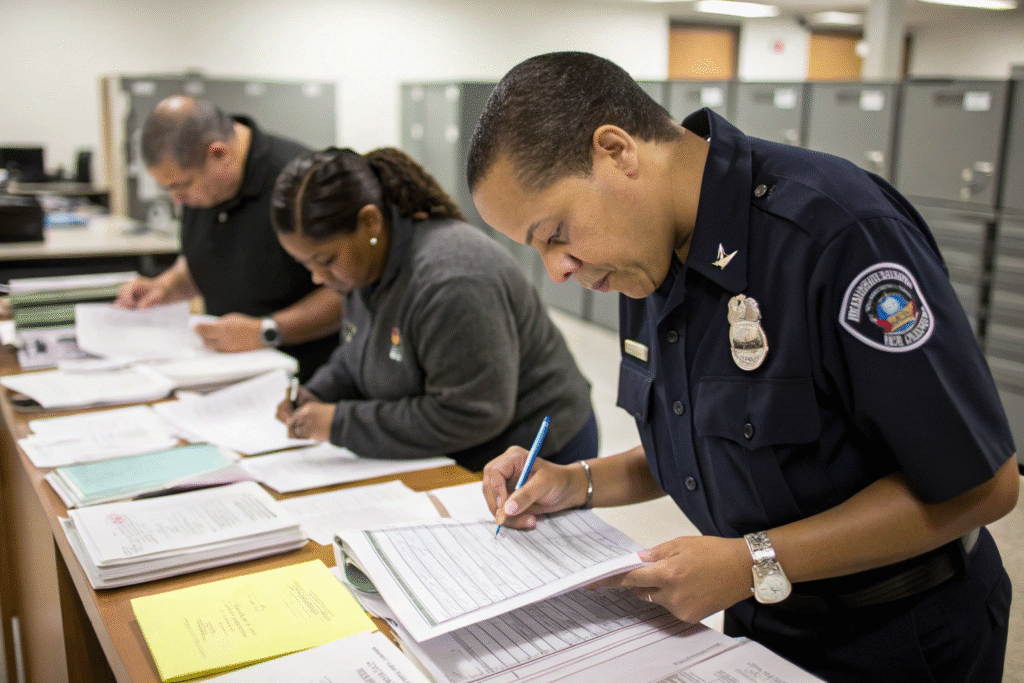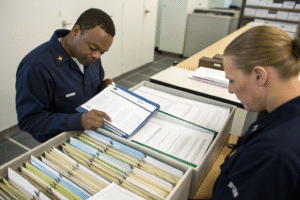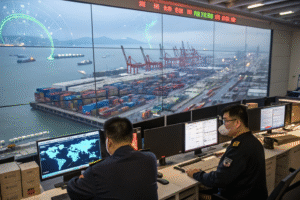Nothing creates more frustration and cost than having your shipment detained by US Customs. The delays, storage fees, and potential penalties can quickly turn a profitable import into a financial loss. Many importers experience this nightmare scenario simply because they lacked knowledge about proper customs compliance procedures.
You can avoid shipments getting stuck in US Customs by ensuring accurate documentation, proper product classification, compliance with all regulations, and working with experienced customs brokers. Prevention through careful preparation is significantly more effective than trying to resolve problems after they occur.
Let's examine the specific steps you can take to ensure your shipments clear US Customs smoothly and avoid the costly delays that plague unprepared importers.
What documentation prevents customs delays?
Complete and accurate documentation forms the foundation of smooth customs clearance. Missing or incorrect paperwork represents the most common reason for customs holds. The documents must tell a clear, consistent story about your shipment from origin to destination.
The essential documents include a commercial invoice with detailed product descriptions and values, packing list matching the invoice quantities, bill of lading or air waybill, certificate of origin when required, and any special certificates for regulated products. Many shipments get delayed because documents contain inconsistencies - for example, when the commercial invoice describes "cotton t-shirts" but the packing list says "clothing" or when values differ between documents. We implement a three-point verification system to ensure all documents align perfectly before submission.

Why is the commercial invoice so critical?
The commercial invoice serves as the primary customs document because:
- It determines duty assessment based on product description and value
- It must match other documents exactly to avoid red flags
- It provides manufacturer information required for various regulations
- It includes trade agreement information when claiming preferential treatment
- It serves as the foundation for all other customs paperwork
Even minor errors in the commercial invoice can trigger extensive customs reviews and delays.
How can you ensure document consistency?
Implement these practices to maintain document integrity:
- Use a master data sheet that populates all documents from one source
- Conduct three-way matching between invoice, packing list, and bill of lading
- Verify translations when documents originate in other languages
- Maintain document templates with approved product descriptions
- Review for regulatory updates that might require new information
These systematic approaches prevent the simple errors that cause most customs delays.
How does proper classification prevent problems?
Correct HS code classification is arguably the most technical aspect of customs compliance, and errors here frequently result in lengthy delays, audits, and potential penalties. Classification determines not just the duty rate but also whether your products face additional regulations or restrictions.
The Harmonized System uses 6-digit codes recognized internationally, with additional digits for US-specific classification. Misclassification can lead to underpayment of duties (triggering audits and back-payments) or overpayment (costing you money unnecessarily). More seriously, incorrect classification might mean you fail to obtain required permits for restricted items. We provide classification services that include binding rulings from Customs when necessary, ensuring certainty before your goods even ship.

What common classification mistakes cause delays?
Avoid these frequent classification errors:
- Using supplier-provided codes without independent verification
- Selecting overly broad codes instead of more specific categories
- Misunderstanding product composition or function
- Failing to update classifications when products change
- Ignoring recent classification rulings that might affect your products
These mistakes often trigger customs reviews that delay shipments for days or weeks.
How can binding rulings provide protection?
Binding rulings from US Customs offer:
- Legal certainty for your classification approach
- Audit protection if your classification is challenged
- Predictable costing for duty planning purposes
- Clear guidance for similar future shipments
- Risk reduction regarding potential penalties
This proactive approach transforms classification from a uncertainty into a compliance strength.
What regulatory compliance issues commonly trap importers?
Beyond classification and documentation, numerous regulatory requirements can snag shipments. Many importers focus solely on customs duties while overlooking other agencies' requirements that equally impact clearance timing.
Various products require additional certifications or are subject to specific agency oversight. For example, electronics need FCC certification, food products require FDA approval, textiles need FTC labeling, and children's products require CPSC compliance. The import security filing (ISF) must be submitted 24 hours before loading at foreign ports, with significant penalties for late or inaccurate filings. Understanding which additional regulations apply to your products is essential for preventing customs holds.

How can you identify additional agency requirements?
Systematic identification involves:
- Maintaining a product regulatory matrix tracking all requirements
- Consulting the HTSUS Additional Requirements sections for your codes
- Monitoring agency websites for updated regulations
- Working with product specialists who understand industry-specific rules
- Conducting pre-shipment reviews for new products or suppliers
This proactive identification prevents surprises at the border.
What is the Importer Security Filing requirement?
The ISF (10+2 Rule) requires:
- Advanced submission 24 hours before foreign loading
- Ten data elements from importers about shipment details
- Two additional elements from ocean carriers
- Accuracy requirements with penalties for errors
- Timely updates if information changes
Proper ISF management prevents the substantial fines and holds that disrupt supply chains.
How does communication prevent customs issues?
Proactive communication with all supply chain partners significantly reduces customs problems. Many delays occur because different parties hold crucial information but don't share it effectively until problems arise.
Establish clear communication protocols with your suppliers, freight forwarder, customs broker, and internal teams. Ensure your supplier understands what information you need and why it matters for US customs. Maintain regular contact with your customs broker, providing advance notice of shipments and unusual circumstances. The most successful importers treat customs compliance as an integrated process rather than something handled at the last minute by separate parties.

What information should suppliers provide in advance?
Key supplier information includes:
- Complete product descriptions with materials and components
- Manufacturer details including name and address
- Accurate valuation information with cost breakdowns
- Production process details for origin determination
- Regulatory compliance documentation for controlled items
Setting clear expectations with suppliers prevents documentation gaps that cause customs delays.
How can technology improve customs communication?
Modern systems enhance communication through:
- Shared platforms providing visibility to all parties
- Automated alerts for missing documents or information
- Digital document management ensuring version control
- Real-time status updates throughout the clearance process
- Centralized communication logs preventing lost information
These technological tools create the transparency needed for smooth customs clearance.
Conclusion
Preventing customs delays requires a comprehensive approach that includes accurate documentation, proper classification, regulatory compliance, and effective communication. By addressing these areas proactively rather than reactively, you can transform customs clearance from a constant worry into a smooth, predictable process. The investment in proper customs management pays dividends through reduced delays, lower costs, and more reliable supply chain performance. Remember that the most successful importers treat customs compliance as an integral part of their business operations rather than as an afterthought handled at the border.









